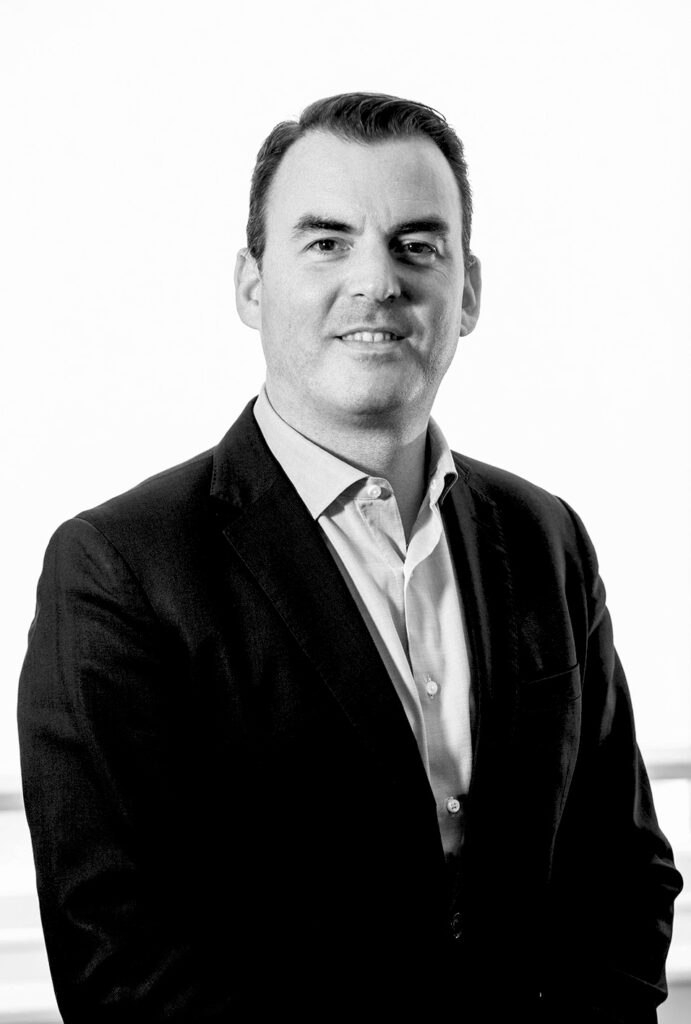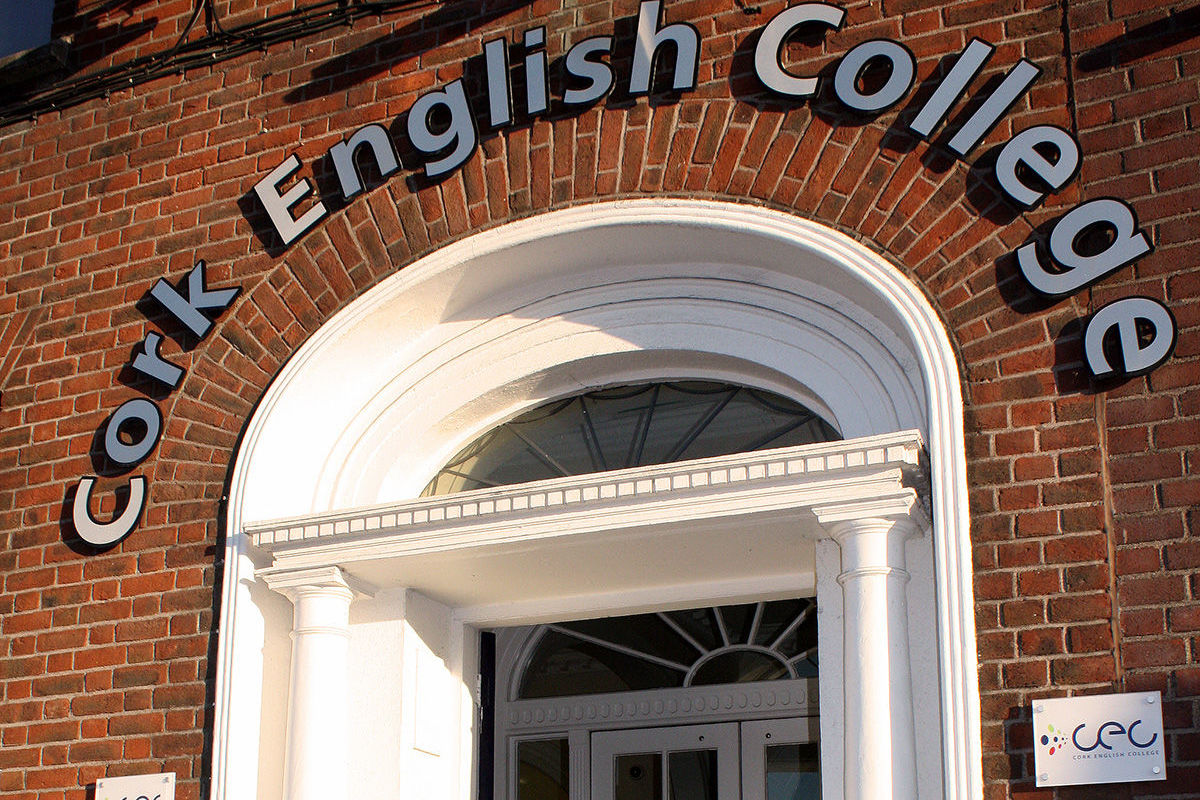Meet The Director – Marc Cullen of Cork English College
- Can you tell us about the inspiration behind starting your language centre?
- What were some of the biggest challenges you faced when starting your business, and how did you overcome them?
- What values or principles guide your company’s operations?
- How do you maintain a strong company culture and why is it important to you?
- How do you foster collaboration and teamwork within your company?
- How do you incorporate sustainability and corporate social responsibility within your company?
- What do you personally consider to be the benefits and opportunities from Erasmus plus for participants and institutions?
- What can participants hope to achieve by attending Erasmus Plus professional development course at Cork English College?
- What are your goals and aspirations for the future of the business?

Can you tell us about the inspiration behind starting your language centre?
Cork English College was founded back in 1978 by my mother and her inspiration was a desire to welcome young students to Cork and to Ireland. She had been in Spain before that and travelled. I joined the company obviously a couple of years later, and we expanded into the adult business. And I suppose the inspiration there was really, as I said, put Cork on the map, welcome young and adult students, and ensure that they would enjoy an enriching experience here in Cork.
What were some of the biggest challenges you faced when starting your business, and how did you overcome them?
The biggest challenge back in the day when we started was obviously the knowledge of where Cork was. Many people knew Ireland well, but they didn’t know Cork as a destination. So, putting Cork on the map globally as a premium safe destination to learn English. Another challenge was access – obviously back then access to Ireland was primarily through Dublin so it was how to get students to Cork to the south of Ireland. We overcame them by providing extensive information, extensive marketing to to our potential students abroad and ensuring that we explained to teachers and students how easy was to get to Cork and how friendly and safe it is.
How has your centre evolved since it’s inception?

Over the years as I was growing up, I was always involved in the school, in some form or fashion. And I started working in the centres, and discovered it was something that I had a great passion for. I have a great passion for languages and went to university to study linguistics. I was living in Spain for a while and when I returned to Ireland we expanded the business into adult training. Over the years we have we’ve grown from purely juniors to juniors and adults. We’re also an official exam centre for all the major international examinations and IELTS Cambridge, TOIC, OET, etc. We also run executive programs in recent years we have started working more with Erasmus+ programs. We have three centres here in the city centre, and in the centre of Cork City we have two junior centres and apart from simply providing the training we also provide all of the ancillary activities such as accommodation, transfers, activities all of this is to ensure that anybody who comes to train with us has a really full experience, not simply sitting in the classroom, but actually experiencing what Ireland and Cork has to offer.
What values or principles guide your company’s operations?
In a nutshell, quality and service. For us, you must be passionate about the business. We love it. It’s not just a job, it’s a passion. At present we have 33 different nationalities studying here with us. I just went to lunch, and I spoke to a Taiwanese student and a French teacher, which is not something that you do in every other job when you’re just wandering through your business.
We’re dedicated to our students, and we provide full support to our students. We’re here for them with a second. We’re a family away from home so that whenever anybody does travel over to us whether it’s an experienced traveller or somebody who is Just taking the first step to to enhance their career and future. We’re the support with the shoulder that you can lean on and it’s something that and runs right throughout the company.
How do you maintain a strong company culture and why is it important to you?
Being a family run business is very important. We started as a family run business and the ethos behind is attention to the individual student delivering extremely high customer service and understanding our students. Understanding them as individuals and taking an interest in each student that’s there, listening to the stories of they all have to tell. We try to keep our staff motivated. We encourage cooperation between different departments, and cooperation between staff members, so that there is that feeling of helping each other, which transmits out to our students as well. Also, continuous professional development is important. We support all our staff to train in different areas.
How do you foster collaboration and teamwork within your company?
We’ve a very varied and well-trained team who fully buy into our ethos, and that’s really important. When we interview, we explain the ethos behind the company, whether it’s with 50 trainees in the building or whether it’s with 300 trainees in the building. That message must flow. And the ethos of quality and personal service to everybody who comes to train with us, but also the same respect to each other within the company. Collaboration between departments is essential. So being Irish as well, we all enjoy bit of a social and that’s incredibly important! On the cooperation side of it, you could have one period of the year where one department is busier than the other, and we would help each other and vice versa.
We’re a small team with incredibly good communication between all of us, and we’re here to help each other.
How do you incorporate sustainability and corporate social responsibility within your company?
Pre-pandemic we were looking already at reducing our paper usage and reducing our carbon footprint. Covid gently pushed us a little bit further into this, when we took all our material and our training material, and we transferred it into digital format, with the final goal of becoming a paperless training centre. We’re not there yet, but we’re certainly on the way! When we look at our paper consumption compared to pre-pandemic, we have approximately 15-20 percent of the usage of what we had previously. We also retrofitted our entire training centres with full LED lighting, fully censored and the climate control is also censored, so there’s no wastage. At present, we are discussing water harvesting and solar panels for the building to reduce the carbon footprint and to reduce any wastage. All our waste within the building is separated and recycled. All the members of staff all support us with this. We also support some local sports teams and local charities on an annual basis, just give something back to the community who help us, and our great host families who welcome our students plus the activity centres that provide the fantastic activities to our students when they’re over. So, it’s a big happy family down here in Cork!
What do you personally consider to be the benefits and opportunities from Erasmus plus for participants and institutions?
The benefits and opportunities – there are so many! I suppose initially you look at participants having the opportunity to grow networks and meet with similar-minded professionals from different countries right across Europe. It gives you that platform where you can express your ideas upon your training and working. You can listen to best practice from other countries, from other participants. I suppose for CEC we would be; we act as a sort of a centre of connectivity between the participants. Also, we have an e-learning platform which all of our participants have access to. Not only when they’re training, but they have access to it before they train and after they train. So, they can be in touch with each other before the actual training sessions and continue to exchange ideas. Innovation is a huge part of CEC. We will continuously be looking at how we can improve our courses, listen to the ideas of participants and trying to find a perfect solution to any of their issues or their problems. The programmes we run inspire participants to maybe think a little bit differently to how they work on a day-to-day basis.
What can participants hope to achieve by attending Erasmus Plus professional development course at Cork English College?
(Apart from having the opportunity of visiting the real capital of Ireland), participants will learn new skills. Skills we hope that they will develop not only personally but professionally. The experience for us is very important. It’s not purely the training. Training can be done anywhere but it’s actually the experience of coming to Cork and coming to CEC. They enjoy an incredible social and cultural range of activities and learn more about the city. Plus there’s the opportunity to network with colleagues from all over Europe and potentially look at different destinations where they might look at doing programs in the future.
What are your goals and aspirations for the future of the business?
There is no normal, everything has changed, it’s a new normal after the pandemic, which is great. We can see it as land of opportunity. There are so many opportunities out there that we hadn’t looked at before. We’re looking at further training, and different types of training. We are extending our exam offerings, and we will be looking to strengthen relationships with all of our partners that we have and looking to new countries. But as I said earlier, to put Cork on the map as a centre of excellence for us, plus training, and CC being, you know, right there. And that for us is a goal that we’re looking to achieve.
Learn more about Cork English College.
